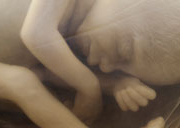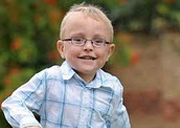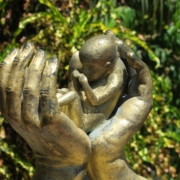Eugenics close to becoming a ‘human right’ in Europe
 A pending case (Kruzmane vs. Latvia) before the European Court of Human Rights (ECHR) could have profound consequences for people with disabilities. The ECHR is preparing to issue a ruling on the fundamental right to the prenatal screening and elimination of children with diseases or disabilities.
A pending case (Kruzmane vs. Latvia) before the European Court of Human Rights (ECHR) could have profound consequences for people with disabilities. The ECHR is preparing to issue a ruling on the fundamental right to the prenatal screening and elimination of children with diseases or disabilities.
The Court is called upon to rule on the complaint filed by a Latvian woman against her doctor who, allegedly,did not prescribe a screening test for Down syndrome for her during her pregnancy, which would have shown that her child had Down syndrome and enabled her to have an abortion.
The applicant claims to have suffered a violation of her right to respect for private life, including the right to have the prenatal test and to decide to have an abortion. If the ECHR rules in favour of her claim, it would be ruling that the fundamental right to respect for private life includes the right to have recourse to the prenatal ‘screening-elimination’ procedure for disabled children. This ‘procedure’ is simply a way to eliminate children regarded as ‘not in conformity’. Hence its eugenic nature. A decision in favour would not only increase the stigmatisation of disabled people but would also make the eugenic process (of selecting and eliminating certain people) a human right.
Moreover, if passed, every Member State would be obliged to ensure that the same right is in place to avoid being taken to the European Court if a case of this nature were to emerge in their country.
There is no doubt that the Kruzamane case and other cases now pending before the ECHR are being used strategically to try to advance the ‘rights’ to abortion and eugenics.
Faced with this danger of prenatal screening and elimination becoming enshrined and consecrated as a human right, concerned organisations, including associations and families of people with Down syndrome, across Europeare appealing for the support of European citizens to recognise the humanity, and protect the life, of Down syndrome and disabled people. An online petition called: ‘Eugenics is not a human right’ has been set up to encourage people to sign up and support those with disabilities. It would be wonderful if many more people signed up to this across all of Europe: www.stopeugenicsnow.org. More information about the case and its implications can also be found at the this website.
In France, 96% of fetuses with Down syndrome are aborted. We are little better in the UK where 95% of all babies found to have Down syndrome before birth have their lives ended in this way.The systematic elimination of children diagnosed with Down syndrome and other genetic disorders is a tragedy and an indictment upon our society that allows – indeed encourages – the measuring of a person’s worth by an IQ score.
There is no doubt that bringing up a child with special needs involves substantial emotional and financial cost. However a report in the American Journal of Medical Genetics found that more than three-quarters of parents with a Down syndrome child had a more positive outlook on life and almost 90% of siblings said they considered themselves better people because of their family member with Down syndrome. Moreover, it found that nearly 99% of people with Down syndrome are happy with their lives. Overwhelmingly, parents and siblings reported loving, and having pride in, their family member with Down syndrome.
All of us are called in a whole variety of ways to engage in the fight for these very special people and others in a similar position of vulnerability. Signing this petition provides a simple, quick and, we hope, effective opportunity to recognise and resist the eugenic mindset in European society today.
Follow these links if you want to read some previous blogs on this issue:
New pre-natal screening test makes eliminating all people with genetic disease an achievable reality
Abortion for Down Syndrome – tragic story, review of trends and personal reflections
New test highlights a stark paradox at the heart of prenatal testing












Leave a Reply
Want to join the discussion?Feel free to contribute!